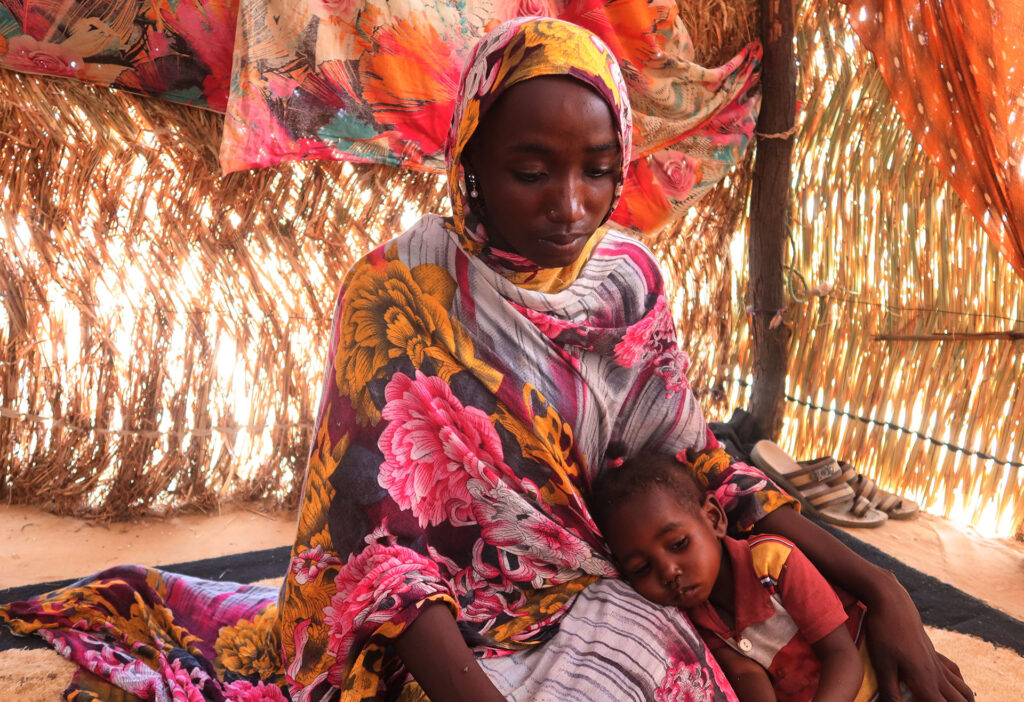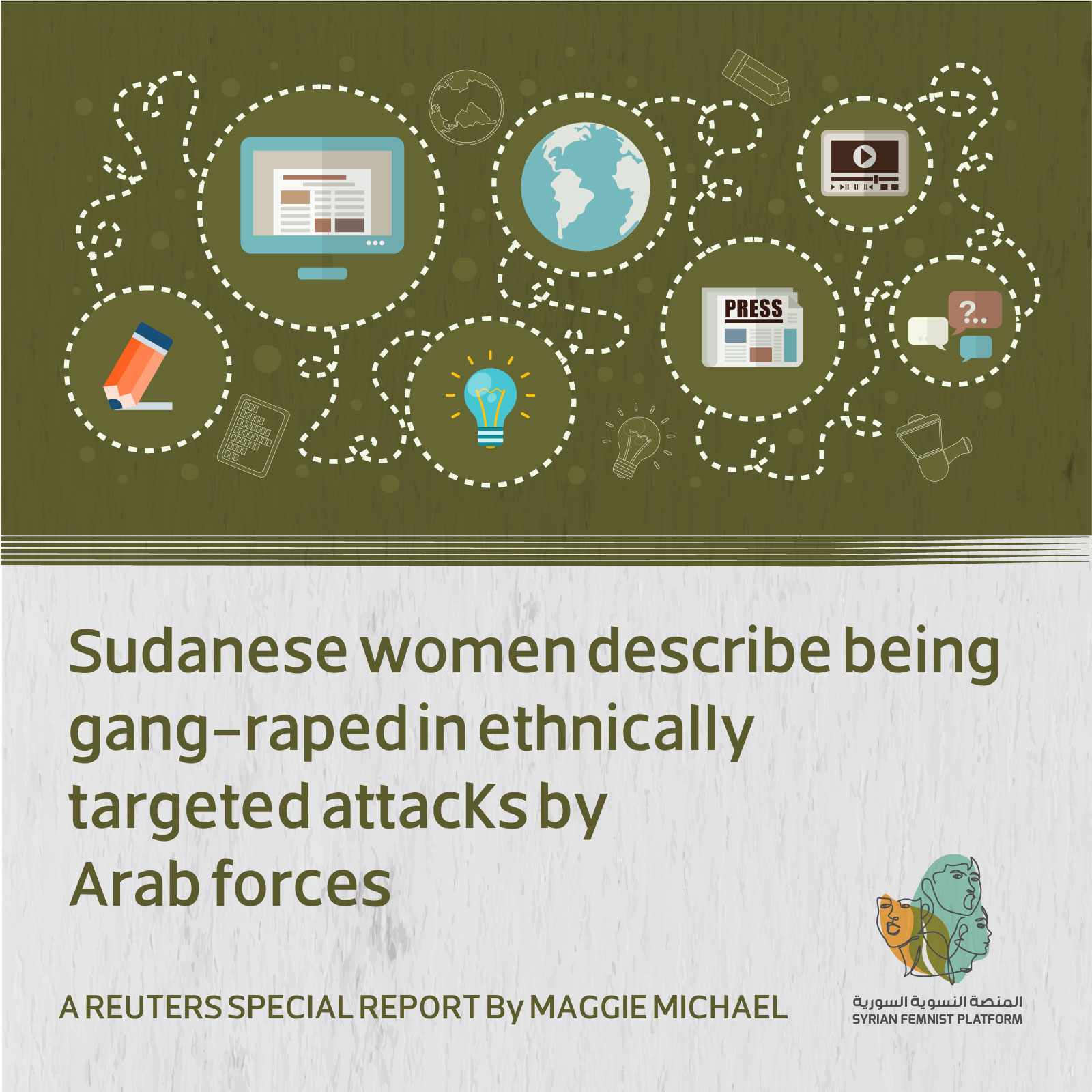A REUTERS SPECIAL REPORT By MAGGIE MICHAEL
Rape is widespread amid the war in Sudan. Young women from the ethnic-African Masalit tribe say they were sexually assaulted at gunpoint by RSF paramilitary and Arab militia forces during attacks on the city of El Geneina in West Darfur. ‘For three days, they were raping me,’ one teenager said.
A 24-year-old raped by armed men in her home just feet from her mother. A 19-year-old abducted and raped by four men over three days. A 28-year-old women’s rights activist, seized by men on the doorstep of her home and then raped while being held for hours in an abandoned house.
They are among 11 young Masalit women interviewed by Reuters who said they were sexually assaulted amid the war in Sudan by members of the Rapid Support Forces (RSF), an Arab-dominated paramilitary group, and allied Arab militiamen. The assaults, they said, took place during weeks of attacks earlier this year in El Geneina, capital of Sudan’s West Darfur region.
Nine of the women described being raped by multiple men. All 11 said they were assaulted at gunpoint. Another three people said they witnessed women being raped.
Reuters earlier detailed the carnage that erupted in El Geneina from late April to mid-June, when the RSF and its allies targeted the Masalit, a darker-skinned ethnic-African tribe that comprised a majority of the city before they were largely driven out. Survivors described civilians slaughtered at home, in the streets and in a river valley – picked off by snipers, mowed down with automatic weapons, hacked with swords, burned alive in their houses. In early November, the RSF and Arab militia fighters waged another wave of ethnically targeted attacks in the city, Reuters recently reported.
Among the survivors of the earlier attacks: a 15-year-old girl who described seeing her parents killed and enduring an hours-long ordeal in which five RSF fighters raped her and a friend – then shot the friend dead.
This report details the accounts of other Masalit women who say they were raped. Taken together with reports of rape cited by international organizations, their allegations point to the specific targeting of Masalit women for sexual assault by the RSF and allied Arab forces in El Geneina.
All 11 women interviewed for this story said the men who attacked them wore either RSF military uniforms, or robes and turbans commonly worn by Arab militiamen.
The women – all in their teens or twenties – were interviewed in the Chadian town of Adre, near the Sudan border, in July and August. All spoke on condition of anonymity, citing the stigma attached to rape or fear of reprisals.
Reuters was unable to independently corroborate all the details of their accounts. But in many instances, relatives and friends confirmed elements of their stories.
Common patterns emerged from their descriptions. Nearly all said they were raped by multiple men.
Eight of the women said their ethnicity was specifically invoked by their assailants. The men mentioned their Masalit identity, they said, or used ethnic slurs for the Masalit and other darker-skinned non-Arabs.
Some believed they were singled out because of their work advocating for the rights of Darfur people. Three told Reuters they were human rights activists. A fourth said she is married to an advocate for displaced people.
Survivors of the renewed attacks on the Masalit in El Geneina in early November also recounted incidents of sexual violence. Three said they witnessed sexual attacks by RSF or Arab militia forces.
Another woman, Hanan Idriss, 22, said that she and her sister narrowly escaped being raped on Nov. 2. They made up stories: Idriss said she was menstruating, while her sister told the militiamen she was HIV-positive.
“They wanted to rape us,” Idriss said, but the stories put them off. Instead, the attackers beat them and looted their house before leaving, Idriss said.
Emir Massar Aseel, an Arab tribal leader in El Geneina, dismissed the rape allegations as “empty lies.” Aseel is a leader of the Rizeigat – one of the largest Arab tribes in West Darfur and the group from which many RSF leaders hail. Arab tribal traditions prohibit sexual assault and bar Arabs from marrying Masalit, Aseel said in a phone interview, and thus his people couldn’t have committed mass rape.
“If I can’t bring myself to marry” a Masalit woman, Aseel said, “why would I go and take her by force?”
Aseel said the Masalit started the conflict, forcing Arabs to respond.
The RSF didn’t respond to detailed questions for this report. The group has said the violence against civilians in Darfur arose from tribal disputes and blamed the Sudanese army for fuelling the fighting. Of the broader Sudan conflict that erupted in April, the RSF has said it opposes any abuses against civilians.
The sexual-assault reports come amid the war that broke out in April between the Sudanese army and the RSF in the capital of Khartoum. The fighting has killed more than 10,000 people and displaced more than 6 million, the United Nations estimates. It has also set off a surge of violence in Darfur, the western Sudan region where the RSF has its power base. The area has been plagued by decades of conflict, driven often by competition for land, water and other scarce resources.
Human Rights Watch has reported that several dozen women were raped during the El Geneina violence earlier this year and appear to have been targeted because of their Masalit ethnicity. The U.N. in November said that across Sudan it has received credible reports of conflict-linked sexual violence involving at least 105 victims. The International Criminal Court (ICC) in The Hague said in July it is investigating the hostilities in Darfur, including reports of killings, rapes and crimes against children.
The accounts of rape by the women Reuters spoke to could constitute war crimes under the Rome Statute that established the ICC, which prohibits sexual violence in conflict, said Noelle Quenivet, professor of international law at the Universtiy of the West of England in the UK. The sexual violence, as reported by Reuters and relief organizations, “looks like it is widespread,” Quenivet said. Under the Rome Statute, she said, widespread or systematic sexual violence could amount to crimes against humanity.

Hanan Idriss, 22, and her sister successfully warded off RSF and Arab militiamen who threatened to rape them by making up stories. Idriss told the militiamen that she was menstruating, while her sister said she was HIV positive. She is seen here in Adre with her daughter. REUTERS/El Tayeb Siddig

